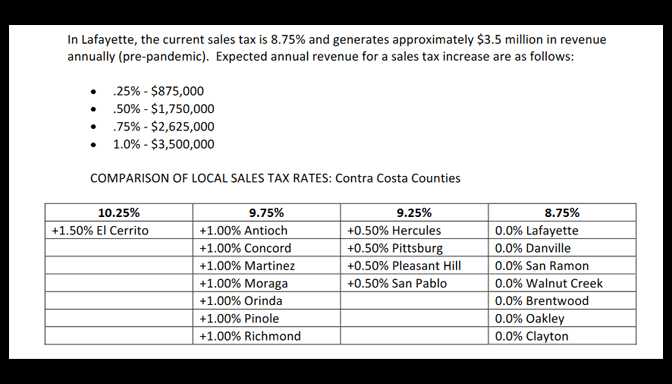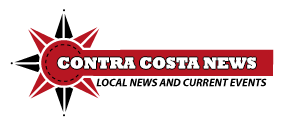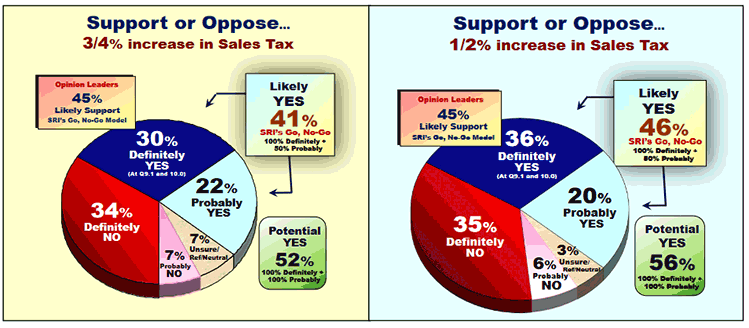On Monday, the Lafayette City Council will begin the process of possibly placing a 1/2 percent increase in sales tax on the November ballot.
This comes as the city is dealing with a 10% ongoing structural deficit every year going forward—approximately $2 million. However, recent polling shows that nearly three quarters (74%) of local voters are not aware of the fact that the City will soon be facing an annual deficit of 10% or about $2M.
According to the staff report, this was due to inflation impacting everything from materials to labor, the increasing cost of insurance, and new state laws and mandates which increase local government administrative and financial burdens.
After an ad-hoc committee was formed late last year and a 5-year forecast and budget was done in detail, they looked at potential reductions of 10% in services/staffing but determined the cuts would have a disastrous impact.
Next, the ad-hoc committee looked at options for raising revenues that were available such as a sales tax increase which was presented to the council on October 10, 2023 (see staff report).
- Raise fees – raise fees for recreation programs and for planning services
- Property taxes – would be approximately $200 per parcel to cover just the deficit. Admit passing this tax would be difficult given current property levels.
- Sales Tax – Lafayette currently is at 8.75%. Moraga and Orinda have already increased sales tax by a full 1% to 9.75%, as has concord. Walnut Creek and Pleasant Hill are at 9.25%. One advantage is sales tax won’t be fully funded by Lafayette residents but will be paid by non-residents that also use local streets and facilities.
Council Discussion:
On Monday, the council will hear results of a recent survey of residents after the city was looking for a benchmark.
Given the results of the poll, SRI recommends that the City put a funding measure on the ballot for a ½ percent increase in the sales tax but cautioned that absent a robust public outreach effort to inform voters of the need for the tax, such a measure would likely not be successful. The poll reveals that nearly three quarters (74%) of local voters are not aware of the fact that the City will soon be facing an annual deficit of 10% or about $2M.
In February, the 2024 ad-hoc Fiscal Sustainability Subcommittee – Mayor Dawson and Vice Mayor Kwok– reviewed the poll results and concurred with SRI’s recommendation to launch a public outreach campaign, believing that it is essential that the community be informed about the City’s impending budget shortfalls and the Council hear from a wide variety of community members, stakeholders, and other interested parties to assess community sentiment regarding the City’s options for cutting costs and/or raising revenue.
Staff proposes the following budget for the outreach effort:
- $40,000 – Engage public relations consultant for up to 8 months to assist with city-wide informational campaign
- $12,000 – Interactive tools to engage resident feedback on budget issues
- $8,000 – Collateral material (graphic design, printing, social media ads, etc.

Poll Results:
If the City were to place such a funding measure on the November 2024 ballot, it would not be authorized. Likely voter support (based upon SRI’s proven Go, No-Go Model)1, would be 36% YES; potential voter support would be less than simple-majority (47% YES)…thus, the funding measure would fail.
Those respondents who said they would not support a 1%-increase in the local sales tax were then asked if they would support a ¾-percent increase; finally, those who said they would not support a ¾-percent increase were asked if they would support a ½-percent increase in the local sales tax to allow the City to address the upcoming fiscal challenges, at least in part. As seen in the graphics, neither one would secure even simple-majority support (41% and 46%, respectively)
That said, potential voter support for either a ¾ or ½ percent increase in the local sales tax does exceed simple-majority support (52% and 56%, respectively). However, realizing requisite voter support for such a funding Measure assumes that Lafayette voters understand the need for these monies, how these revenues will be spent, and both dimensions are consistent with the collective perceptions and core values of the Lafayette electorate. Thus, the remainder of the present discussion identifies the collective perceptions and core values of the Lafayette electorate AND shows how these correspond to voter support for such a funding Measure
Lafayette City Council Meeting
3491 Mt. Diablo Boulevard, Lafayette, California
Monday, March 11, 2024
6:00 p.m
Staff Report – click here
Full Agenda – click here

